How banks decide which renewable energy projects to finance, whether the government should organize auctions for energy storage to encourage the development of these projects, and why it is important to develop PPA contracts — these are just some of the topics discussed at the recently held RES SERBIA 2024 conference in Vrdnik.
On the panel ‘Challenges of Financing and Insuring RES Projects,’ participated Markus von Haniel, Co-founder and Partner of Alcazar Energy, Igor Anić, Chairman of the Executive Board of ProCredit Bank Serbia, Nikola Stamenković, Executive Board Member at Erste Bank, Stefan Jevremović, Director of the Special Solutions Sector at ACB, and Dejan Janjatović, Deputy Chairman of the Executive Board at NLB Komercijalna Banka.
Moderator of this panel was Dragoljub Sretenović, Senior Partner at BDK Advokati, who emphasized that the most important banks for financing renewable energy projects in our market cover up to 80% of the market. He reminded us that electricity prices are unpredictable and that long term, banks must be confident that the project is protected from risks when deciding on lending.
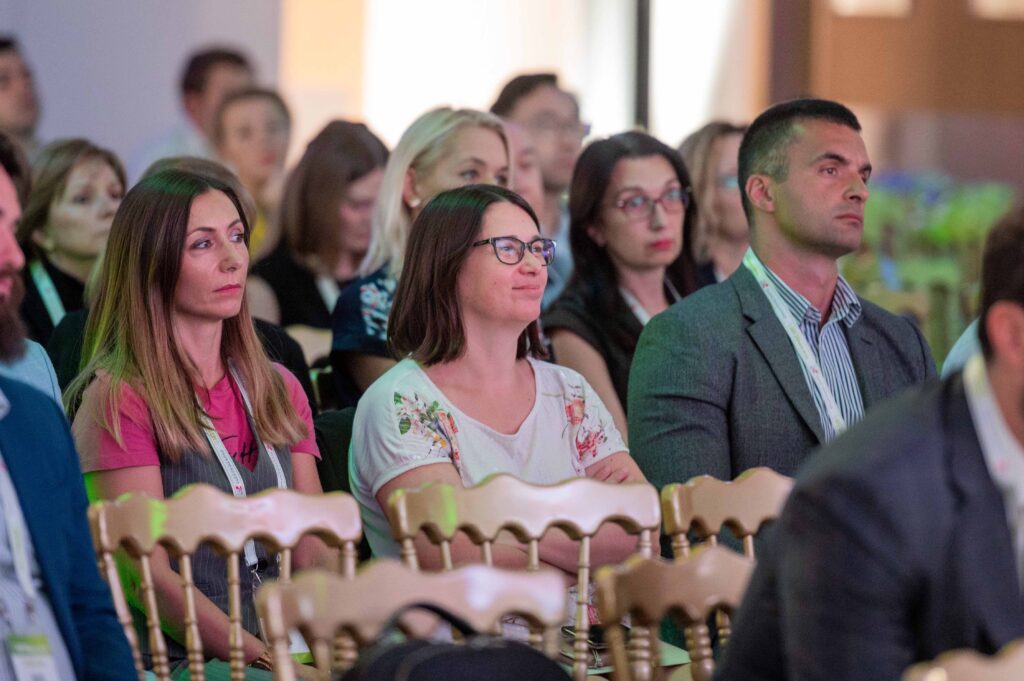
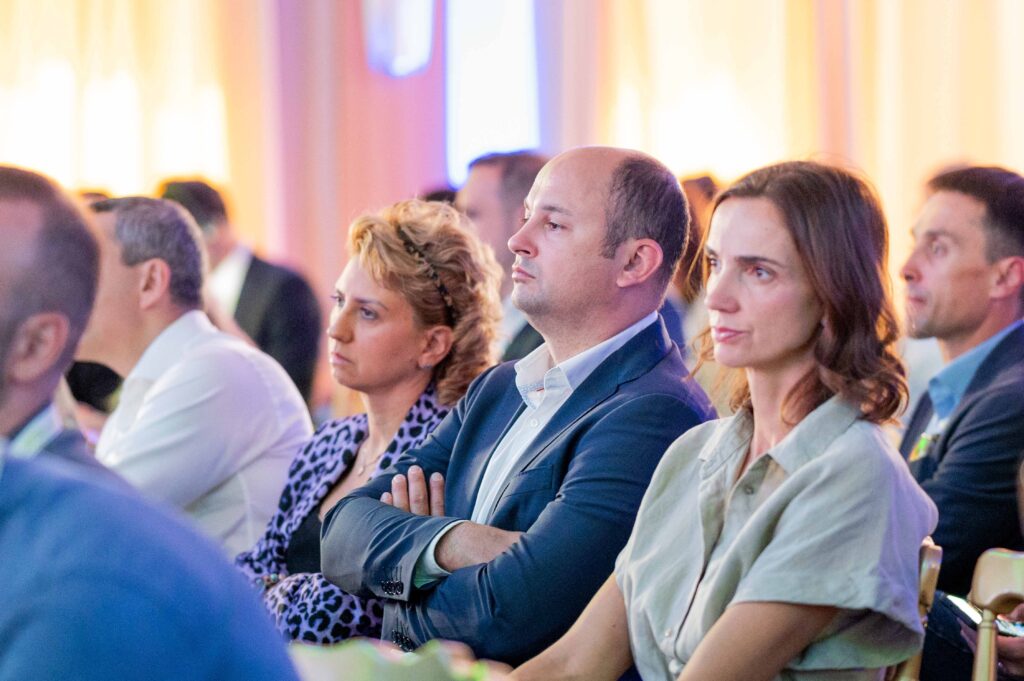
Corporate PPA contracts are missing
Executive Board Member at Erste Bank, Nikola Stamenković, reflected on the financing agreement for constructing the Čibuk 2 wind farm, signed on the sidelines of the conference. Čibuk 2 is one of the winners of last year’s auctions, which, as he stated, are important because they make projects bankable.
– Two projects have already been signed, and we are involved in both. One will be connected to the grid this year or next year, and the other in 2026. I hope that the maximum price at the upcoming auctions will be adequate – Stamenković emphasized.
However, he notes that we are lacking corporate PPA contracts, which are concluded directly between the renewable energy producer and consumer. According to him, in the EU they accounted for 80% of financing. He mentioned that in the region, telecommunications companies were the first to enter these contracts, and they are also of interest to cement and steel manufacturers.
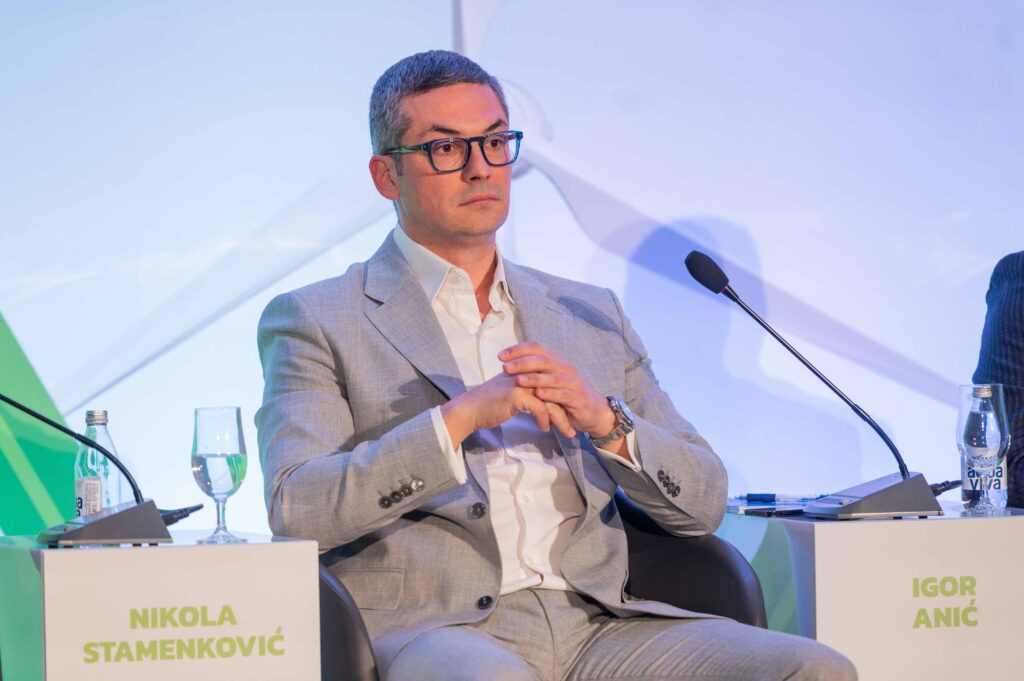
Executive Board Member at Erste Bank, Nikola Stamenković
Stamenković compared the development of renewable sources in Serbia and Hungary.
– Hungary, which is relatively comparable to us, has reached 5.6 GW of renewable energy capacity, and just last year 1.6 GW was built, mostly solar. We are currently at 730 MW, with a goal of 4 GW – Stamenković stated, adding that as renewable energy capacity increases, so does the need for balancing – England and Poland have the most developed battery markets, but through auctions – I believe the government will need to provide a boost here as well.
The potential for financing exists
Igor Anić, Chairman of the Executive Board of ProCredit Bank Serbia, agrees that corporate PPA contracts can accelerate the bankability of projects and fix prices long term. He emphasized that clients are interested in such contracts because they can secure a price that suits them while simultaneously reducing their carbon footprint and becoming more competitive.
– This practice would help a greater number of projects come to life – he stated, adding that there is interest from both large and micro projects for balancing their production: – However, the boost must come from the government.
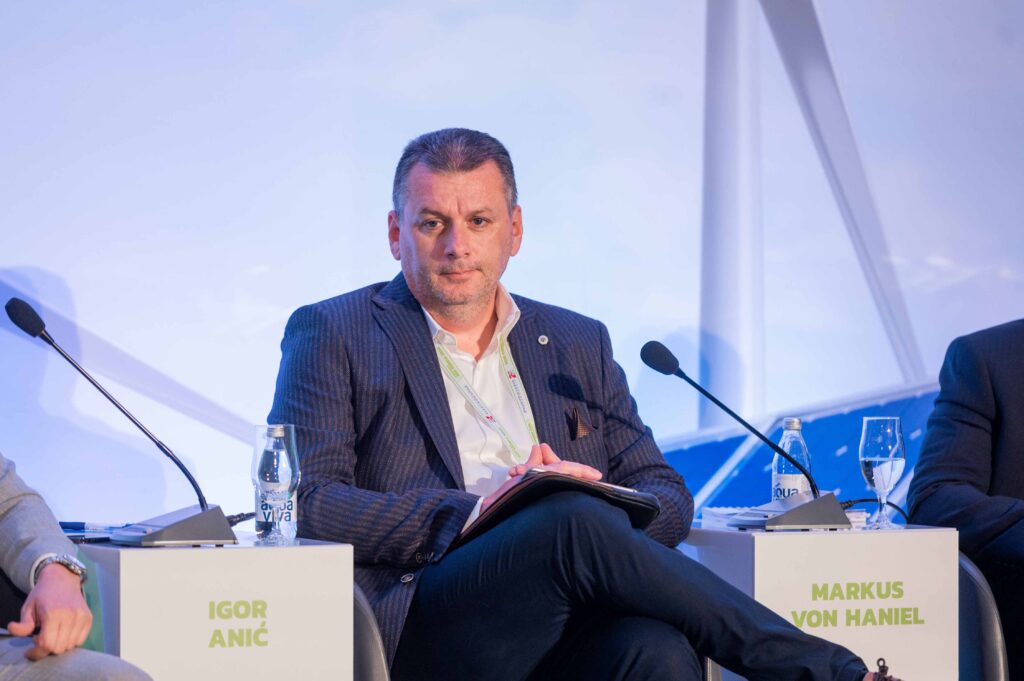
Igor Anić, Chairman of the Executive Board of ProCredit Bank Serbia
He emphasized that the bank’s primary focus is on financing green energy, primarily smaller projects up to 10 MW.
– There is potential for financing, conditions are constantly improving, but the level of investments is not on par with the West, which indicates the potential. We are heading in the right direction, but perhaps the pace should be greater – Anić stated.
Serbia has good projects
Dejan Janjatović, Deputy Chairman of the Executive Board at NLB Komercijalna Banka, emphasizes that this bank, along with its partners, is participating in the financing of three large projects.
– There are good trends for the renewable energy sector; Serbia is well positioned in the region and has many good projects. The regulations are favorable, a clear state strategy has been established, along with a legal framework and specific goals for 2030 and 2050. Can the administration be faster, yes – Janjatović notes, adding that banks would prefer a shorter process since they invest a lot of resources.
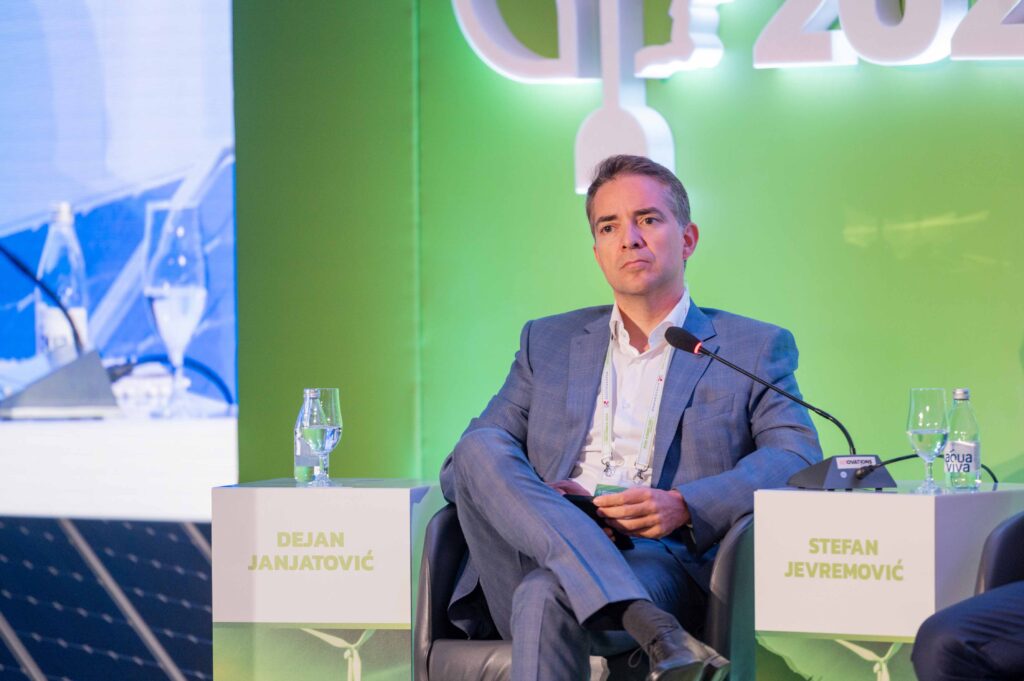
Dejan Janjatović, Deputy Chairman of the Executive Board at NLB Komercijalna Banka
He emphasizes that government support is likely to decrease and that it is important to develop the market for commercial PPA contracts, as the government cannot cover everything through auctions.
– Green transition is an unstoppable process. The energy demand will grow, and I expect more investments in the SME sector. The CBAM regulation is coming into effect, and it will be understood that investments are necessary for products to be competitive – Janjatović emphasized.
Our insurance companies are now taking on more risks
In addition to financing renewable energy projects, there was also discussion about insurance, which, according to Stefan Jevremović, Director of the Special Solutions Sector at ACB, should be included earlier in the project implementation cycle. He noted that insurance premiums have increased and the participation in losses has risen from €100,000 to €1 million.
– The risk of terrorism and war has increased. We now see that war risks need to be insured, whereas previously only terrorism was considered – he noted.
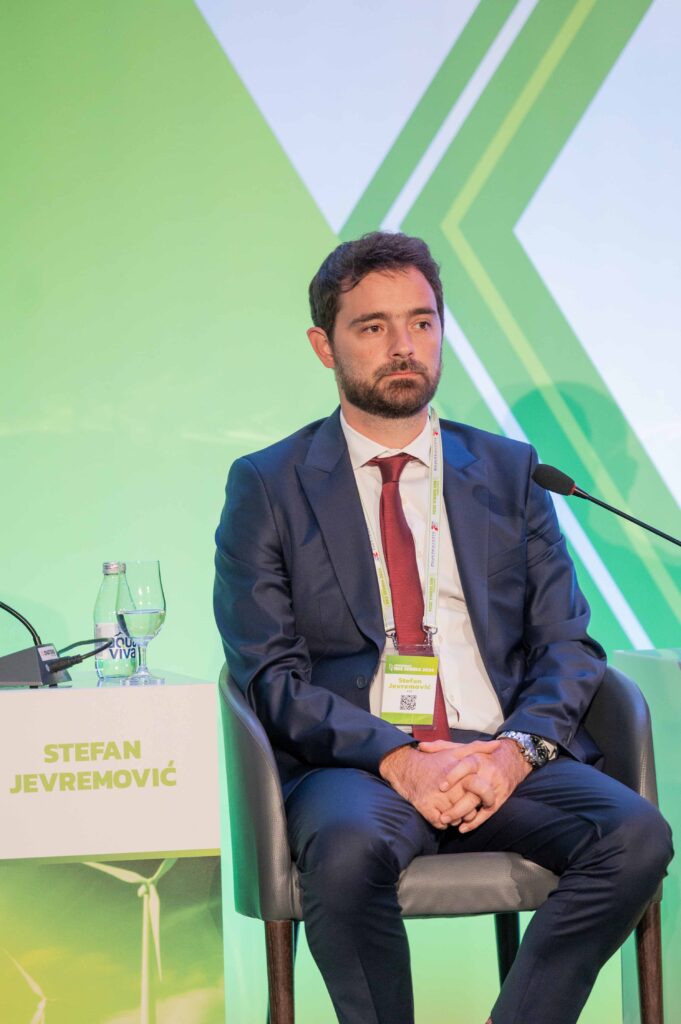
Stefan Jevremović, Director of the Special Solutions Sector at ACB
– In addition to new trends, our insurance companies have changed as well, taking on more risks. He reminds us that the law states that local insurance companies must retain a portion of the risk, and the payment of premiums and claims comes from the local entity.
– Previously, 90-97% of the risk was reinsured and placed abroad, but our insurers have also changed; they have evolved and are taking on more risks. Now, a significant portion of the risk remains in Serbia, with situations where up to 50% can be insured locally. Both premiums and participation are lower in the local market compared to abroad – he notes, adding that ACB has insured the Čibuk 1 and Čibuk 2 wind farms, as well as Krivača.
The Western Balkans present a good opportunity for investments
Markus von Haniel, co-founder and partner of Alcazar Energy emphasized that the Western Balkans are a good opportunity for investments due to the availability of resources and favorable regulations. According to him, this company does not rely on auctions in the long term, but rather on corporate PPA contracts.
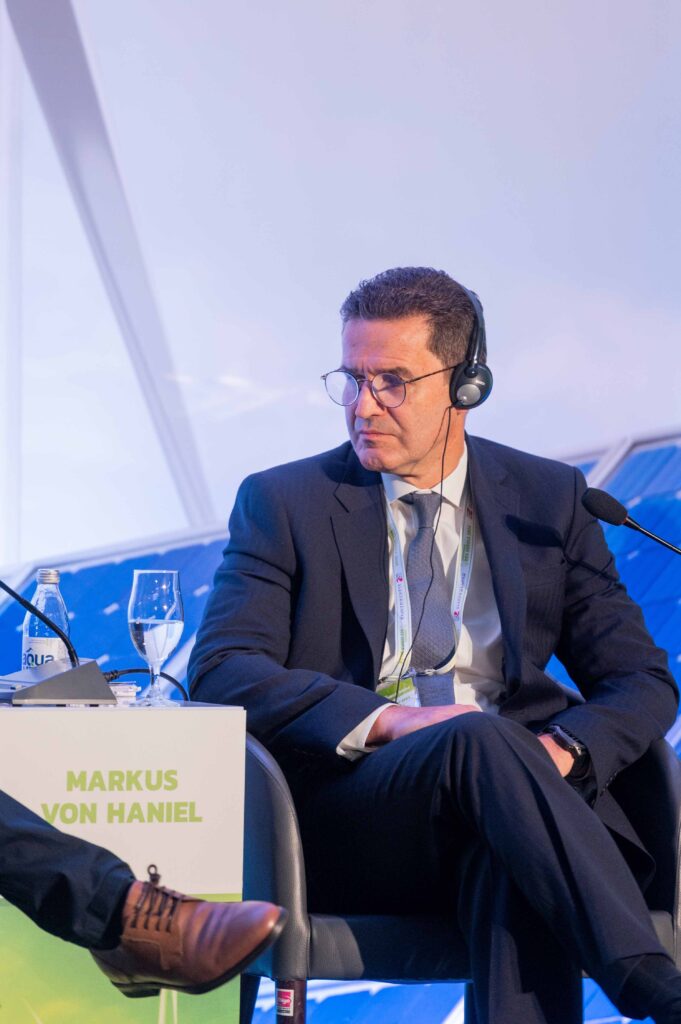
Markus von Haniel, co-founder and partner of Alcazar Energy
– We enter projects early. In Montenegro, we have a wind farm of 150 MW, and we hope to start construction in the middle of next year. In North Macedonia, the construction of a 400 MW wind farm will begin at the end of next year. In Serbia, we don’t have a project yet, but there will be wind, not solar. We have considered many solar projects, but wind, even with a lower Capex, has an advantage for us – Markus von Haniel stated.
You can watch the full panel recording below:


